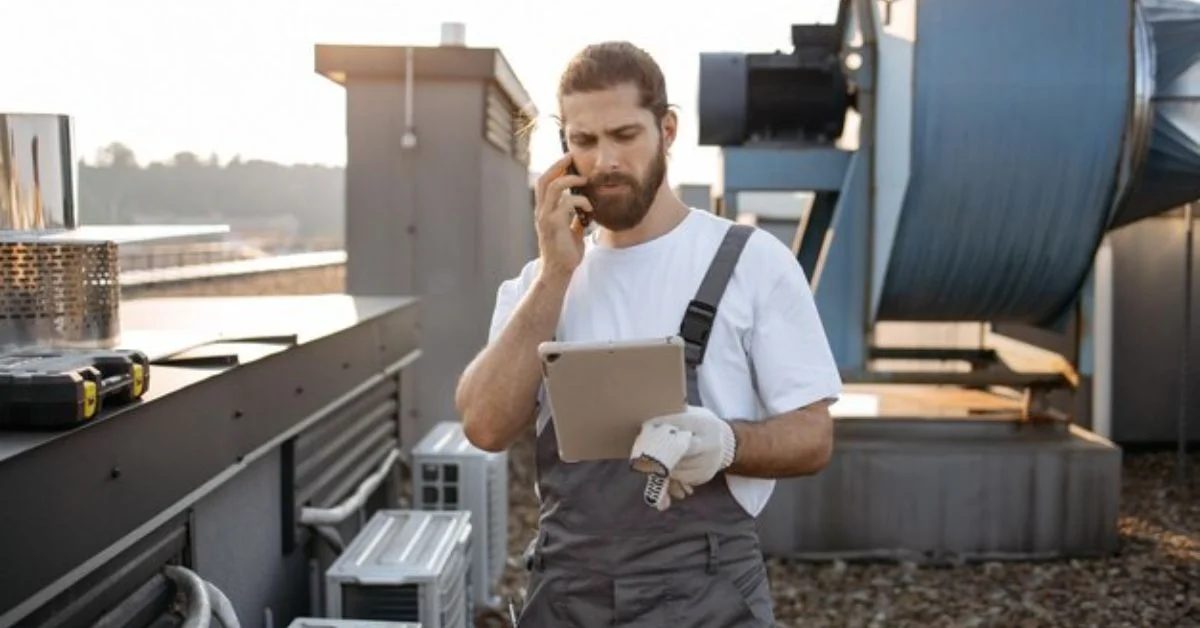Your HVAC system is the backbone of indoor comfort, keeping your home cool during summer and warm through the winter. However, like any mechanical system, it requires regular maintenance and occasional repairs to operate at peak efficiency. Ignoring small issues can lead to bigger problems, potentially disrupting your comfort and increasing energy costs.
This article outlines five clear signs that indicate it’s time to call a professional HVAC contractor. By addressing these issues promptly, you can maintain a comfortable environment and avoid costly repairs. For reliable assistance, companies like PMG Mechanical are well-equipped to handle all your heating and cooling needs.
1. Inconsistent Temperatures
Uneven temperatures throughout your home are a common indicator of HVAC problems.
Causes of Temperature Imbalances
- Ductwork Issues: Leaks or blockages in your duct system can prevent even distribution of air.
- Thermostat Malfunction: A faulty thermostat may fail to regulate temperatures accurately.
- Aging System: Older HVAC systems may struggle to maintain consistent performance.
Why This Matters
Inconsistent temperatures can lead to discomfort and increased energy consumption as the system works harder to compensate.
Solution: An experienced HVAC contractor can diagnose the root cause and recommend appropriate repairs or upgrades.
2. Unusual Noises
Strange sounds coming from your HVAC system are often a sign that something is wrong.
Common Noises and Their Meanings
- Banging or Clanking: Indicates loose or broken parts within the system.
- Whistling or Hissing: Often a sign of duct leaks or refrigerant issues.
- Grinding or Screeching: Suggests problems with the motor or blower components.
Why This Matters
Unaddressed mechanical issues can lead to further damage, potentially shortening the lifespan of your HVAC system.
Solution: Contact a professional HVAC contractor to inspect and repair the system before the issue worsens.
3. Increased Energy Bills
A sudden spike in your energy bills without any changes in usage patterns may signal HVAC inefficiencies.
Common Culprits
- Dirty Filters: Block airflow, forcing the system to work harder.
- Refrigerant Leaks: Reduce cooling efficiency, increasing energy consumption.
- Wear and Tear: Components in older systems may become less efficient over time.
Why This Matters
Higher energy bills not only strain your budget but also indicate that your HVAC system is underperforming.
Solution: Routine maintenance and timely AC repair can restore efficiency and lower energy costs.
4. Poor Airflow
Weak or insufficient airflow can result from several HVAC issues, all of which require prompt attention.
Possible Causes
- Clogged Filters: The most common cause of restricted airflow.
- Blower Problems: A malfunctioning fan or motor can limit air circulation.
- Duct Obstructions: Accumulated debris or damage within ducts can impede airflow.
Why This Matters
Poor airflow affects indoor comfort and puts extra strain on your HVAC system, potentially leading to premature failure.
Solution: A qualified HVAC contractor can inspect the system, clean components, and restore optimal airflow.
5. Unpleasant Odors
Unusual smells emanating from your HVAC system are more than just an annoyance—they could be a warning sign of serious issues.
Types of Odors and Their Causes
- Burning Smell: Indicates overheating components or electrical issues.
- Musty Odor: A sign of mold or mildew growth in the system or ductwork.
- Chemical Smell: Often points to a refrigerant leak.
Why This Matters
Ignoring these odors can lead to health risks or more extensive system damage.
Solution: Turn off your HVAC system and contact a professional to identify and resolve the issue safely.
Preventative Maintenance: Staying Ahead of Repairs
Regular maintenance is the best way to minimize the need for emergency repairs.
Key Maintenance Tasks
- Change Filters: Replace air filters every 1–3 months to maintain efficiency.
- Clean Components: Regularly clean condenser coils, fans, and ductwork to prevent buildup.
- Inspect System: Have an HVAC contractor perform seasonal check-ups to identify and address potential issues early.
When to Consider Replacement
In some cases, repairs may not be enough to restore your HVAC system’s performance, and replacement becomes the more cost-effective option.
Indicators for Replacement
- Frequent Breakdowns: Constant repairs can add up, making a new system a smarter investment.
- Age of System: Most HVAC systems last 10–15 years; older units may not justify the cost of repairs.
- Inefficiency: If your system struggles to keep up despite regular maintenance, it might be time for an upgrade.
Solution: Consult with an HVAC contractor to determine whether repairs or replacement is the best option for your situation.
Benefits of Acting Quickly
Promptly addressing HVAC issues offers several advantages, including:
- Cost Savings: Minor repairs are less expensive than addressing major system failures.
- Extended Lifespan: Timely maintenance prevents excessive wear and tear.
- Improved Comfort: A well-maintained HVAC system ensures consistent temperatures and better air quality.
Choosing the Right HVAC Contractor
Finding a reliable contractor is crucial for effective repairs and maintenance.
What to Look For
- Experience: Choose a contractor with a proven track record in HVAC repair and installation.
- Certifications: Ensure they hold relevant licenses and certifications.
- Transparency: Look for clear communication about costs, timelines, and services.
PMG Mechanical offers professional HVAC services tailored to your specific needs, ensuring quality and reliability with every project.
Conclusion: Protect Your Comfort
Your HVAC system is an investment in your home’s comfort and efficiency. Recognizing the signs of trouble and acting quickly can save you money and prevent unnecessary stress. Whether it’s addressing poor airflow, fixing unusual noises, or tackling inconsistent temperatures, a qualified HVAC contractor is your best ally.
By partnering with professionals like PMG Mechanical, you can ensure your system remains in excellent condition, keeping your home comfortable year-round.
If you find this article helpful, click here for more.









